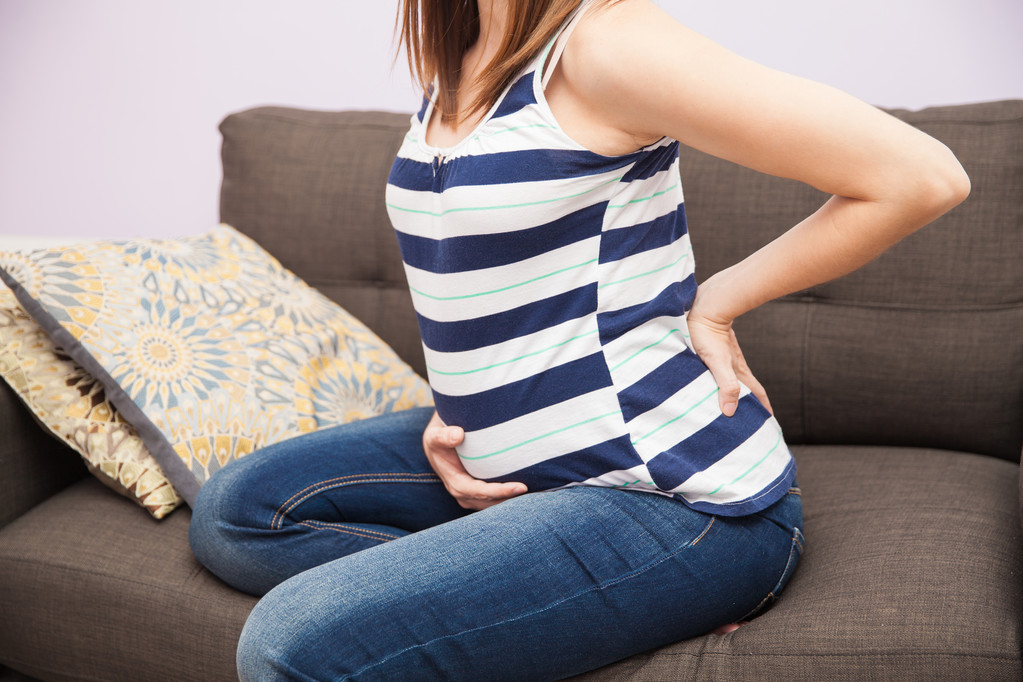Discover the connection between back pain and sciatica during pregnancy.
Are Back Pain and Sciatica Related During Pregnancy?
If you’re expecting a little bundle of joy, you’re probably well aware of the many changes happening in your body. But did you know that back pain and sciatica could also make an unwelcome appearance during pregnancy? It’s time to dive into the connection between these two pesky problems and find out what you can do to make your pregnancy a little more comfortable.

Understanding Back Pain During Pregnancy
Being pregnant is an incredible journey, but it can also come with its fair share of discomforts. One common complaint among expectant mothers is back pain. As your body undergoes numerous changes to accommodate the growing life inside you, it’s no wonder that your back might be feeling a little less than stellar. Let’s delve deeper into the causes, symptoms, and severity of pregnancy-related back pain.
Causes of Pregnancy-Related Back Pain
First things first, let’s talk about why your back might be aching. As your belly grows and your center of gravity shifts, your spine takes on a whole new role. The added weight can put stress on your back muscles, causing them to tighten and ache. It’s like carrying a little bundle of joy in front of you all day, every day!
But that’s not all. Hormonal changes during pregnancy can also contribute to back pain. These hormones, such as relaxin, loosen the ligaments and joints in your body, including those in your back. While this is necessary for your body to prepare for childbirth, it can also lead to increased vulnerability to backaches.
Symptoms and Severity of Back Pain in Pregnancy
Every pregnancy is unique, and so is the way back pain manifests. Some moms-to-be may experience a dull ache that lingers throughout the day, making it difficult to find relief. Others might feel sharp, shooting pains that come and go, like lightning bolts in their back. The severity of back pain can also vary, from a minor annoyance to something that interferes with daily activities.
It’s important to listen to your body and pay attention to any changes in your back pain. If you have concerns or the pain becomes overwhelming, don’t hesitate to consult with your healthcare provider. They can provide guidance and recommend appropriate measures to alleviate your discomfort.
Remember, pregnancy is a time of immense physical and emotional changes. While back pain may be a common companion during this journey, there are ways to manage and minimize it. Stay tuned for our next article, where we will explore effective strategies to relieve pregnancy-related back pain and help you enjoy this special time to the fullest!
The Connection Between Pregnancy and Sciatica
What is Sciatica?
Ah, sciatica – the bane of many backs, pregnant or not. Sciatica refers to pain that radiates along the sciatic nerve, which runs from your lower back down through your hips, buttocks, and legs. It’s generally caused by a herniated disc or bone spur that puts pressure on the nerve, but during pregnancy, additional factors can contribute to this uncomfortable condition.
Sciatica can vary in intensity and duration. Some women may experience mild, occasional discomfort, while others may have severe, persistent pain that affects their daily activities. The pain can be sharp, shooting, or a constant dull ache. It may also be accompanied by tingling, numbness, or weakness in the affected leg.
How Pregnancy Triggers Sciatica
Pregnancy poses a perfect storm for sciatica. As your baby grows, your uterus expands and can put pressure on the sciatic nerve. This pressure can cause irritation and inflammation, leading to pain and discomfort. The weight gain during pregnancy can also contribute to the compression of the nerve.
Additionally, the hormone relaxin, which helps prepare your body for childbirth, can loosen the ligaments in your pelvis, potentially leading to nerve impingement. The combination of these factors can result in sciatic pain and discomfort.
It’s important to note that not all pregnant women will experience sciatica. Factors such as the position of the baby, the mother’s posture, and individual anatomy can influence the likelihood of developing this condition.
Managing sciatica during pregnancy involves a combination of self-care measures and medical interventions. Gentle exercises, such as stretching and prenatal yoga, can help alleviate the pain and improve flexibility. Applying heat or cold packs to the affected area and practicing good posture can also provide relief. In some cases, healthcare providers may recommend physical therapy, chiropractic adjustments, or acupuncture to address the underlying causes of sciatica.
While sciatica during pregnancy can be challenging, it’s important to remember that it is usually temporary and resolves after childbirth. However, if the pain becomes severe or persists after delivery, it’s crucial to seek medical attention to rule out any underlying conditions that may require further treatment.
The Relationship Between Back Pain and Sciatica in Pregnancy
Pregnancy is a beautiful and transformative time in a woman’s life. However, it can also bring about various physical discomforts, including back pain and sciatica. Interestingly, these two conditions often go hand in hand during pregnancy, sharing common causes and interconnected symptoms.
Shared Causes of Back Pain and Sciatica
During pregnancy, a woman’s body undergoes significant changes to accommodate the growing baby. Weight gain is a natural part of this process, as the body prepares to nurture and protect the developing life. However, this additional weight can put strain on the back, leading to discomfort and pain.
Furthermore, hormonal changes play a crucial role in pregnancy, affecting the ligaments and joints. The hormone relaxin, which helps loosen the ligaments in the pelvic area to prepare for childbirth, can also affect other areas of the body. This hormonal influence can contribute to back pain and sciatica, as the ligaments and muscles supporting the spine may become more relaxed and susceptible to strain.
So, if you’re experiencing back pain during pregnancy, there’s a chance that sciatica may tag along for the ride. The same factors that contribute to back pain, such as weight gain and hormonal changes, can also trigger sciatica. It’s like a double whammy of discomfort.
How Back Pain Can Lead to Sciatica
Back pain, especially in the lower back, can pave the way for sciatica by causing inflammation and muscle tightness in the surrounding area. The added weight and strain on the back can lead to muscle imbalances and tension, which can then compress the sciatic nerve.
The sciatic nerve is the longest nerve in the body, running from the lower back, through the buttocks, and down the legs. When compressed or irritated, it can cause a range of symptoms, including shooting pain, tingling, and numbness. This is the classic presentation of sciatica.
Imagine a domino effect – one issue leads to another. In this case, back pain triggers inflammation and muscle tightness, which then compresses the sciatic nerve, resulting in the development of sciatica symptoms. It’s a complex interplay between the structures of the body, hormones, and the growing demands of pregnancy.
It’s important to note that every woman’s experience with back pain and sciatica during pregnancy is unique. Some may only experience mild discomfort, while others may find it more challenging to cope with the pain. It’s always advisable to consult with a healthcare professional who can provide personalized guidance and support.
In conclusion, the relationship between back pain and sciatica during pregnancy is a fascinating one. The shared causes and interconnected symptoms highlight the complex nature of the human body and the incredible changes it undergoes to nurture new life. Understanding these connections can help women navigate the challenges of pregnancy and find relief from discomfort.
Managing Back Pain and Sciatica During Pregnancy
Pregnancy is a beautiful and transformative time in a woman’s life, but it can also come with its fair share of discomforts. One common complaint among expectant mothers is back pain and sciatica. The weight gain, hormonal changes, and shifting of the body’s center of gravity can all contribute to these discomforts.
Fortunately, there are plenty of non-medical interventions that can help alleviate back pain and sciatica during pregnancy. These interventions are safe and effective, providing much-needed relief without the use of medication.

Non-Medical Interventions for Pain Relief
When it comes to managing back pain and sciatica during pregnancy, there are plenty of non-medical interventions to try. Gentle stretches and prenatal yoga can help improve flexibility and strengthen the muscles that support the spine. These exercises not only provide relief but also promote overall well-being.
In addition to exercises, applying hot or cold packs to the affected area can help reduce inflammation and soothe the pain. It’s important to note that pregnant women should avoid applying heat directly to the abdomen and should always use a towel or cloth as a barrier.
Massage therapy is another non-medical intervention that can provide relief. A skilled prenatal massage therapist can target the areas of discomfort and help release tension in the muscles. This can lead to improved circulation and reduced pain.
However, it’s crucial to consult with your healthcare provider before starting any new exercise or treatment regimen. They can provide personalized advice and ensure that the interventions you choose are safe for you and your baby.
Medical Treatments and Their Safety During Pregnancy
While non-medical interventions can be effective for many expectant moms, there may be cases where they do not offer enough relief. In such situations, your healthcare provider may recommend medical treatments to help manage back pain and sciatica during pregnancy.
Physical therapy is a common medical treatment that can provide targeted exercises and techniques to alleviate pain and improve mobility. A trained physical therapist can work with you to develop a personalized treatment plan that takes into account your unique needs and stage of pregnancy.
Chiropractic care is another option that some pregnant women find beneficial. Chiropractors use gentle adjustments to realign the spine and relieve pressure on the nerves, providing relief from back pain and sciatica.
In rare instances, medication may be prescribed to manage severe pain. However, it’s crucial to discuss the safety and potential risks of any medication during pregnancy. Your healthcare provider will weigh the benefits against the potential risks to determine the best course of action for you and your baby.
Remember, every pregnancy is different, and what works for one woman may not work for another. It’s important to listen to your body, communicate openly with your healthcare provider, and explore a range of interventions to find the best approach for managing back pain and sciatica during pregnancy.
Prevention of Back Pain and Sciatica in Pregnancy
Lifestyle Changes for Pain Prevention
While it may not be possible to completely prevent back pain and sciatica during pregnancy, there are steps you can take to reduce your risk. Maintaining good posture, avoiding heavy lifting, and wearing supportive shoes are just a few lifestyle changes that can make a difference. Incorporating gentle exercises targeting your back and core muscles can also strengthen and support your body as it adapts to the changes of pregnancy.
Exercises to Reduce Risk of Back Pain and Sciatica
Speaking of exercises, let’s explore a few that can help fend off back pain and minimize the chances of sciatica crashing your pregnancy party. Prenatal yoga, swimming, and simple stretches designed specifically for expectant moms can all offer relief and strengthen your back and core muscles. Remember to listen to your body, modify exercises as needed, and always consult with your healthcare provider before starting a new exercise routine.
So, are back pain and sciatica related during pregnancy? Absolutely. Both can put a damper on this magical journey. But armed with knowledge and a few tricks up your sleeve, you can tackle these discomforts head-on. Remember, pregnancy is a time to celebrate and enjoy the miracle unfolding within you. And with a little self-care, you’ll be rocking that baby bump like a superstar!



